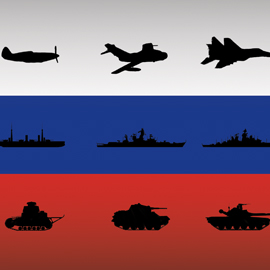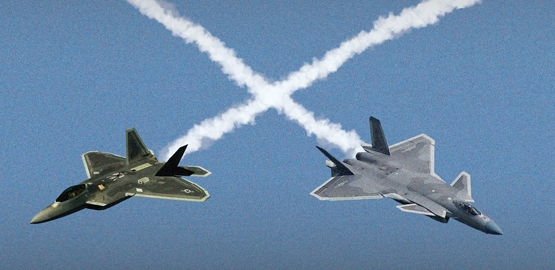Publications
"Nobody does defense policy better than CSBA. Their work on strategic and budgetary topics manages to combine first-rate quality and in-depth research with timeliness and accessibility—which is why so many professionals consider their products indispensable." – Gideon Rose, Editor of Foreign Affairs, 2010-2021
Analysis of the FY 2018 Defense Budget and Trends in Defense Spending
President Trump’s FY 2018 defense budget promises a “historic” defense buildup. At $603 billion in the base national defense budget, some $54 billion over the Budget Control Act caps, it grows the size of military slightly and boosts RDT&E efforts, but doesn’t move the needle on procurement. Does the FY 2018 budget request build the military the U.S. needs? Will Congress succeed in funding more for defense?
Statement Before the Senate Armed Services Committee on Recommendations for a Future National Defense Strategy
Chairman of the Senate Armed Services Committee, Senator John McCain and Ranking Member, Senator Jack Reed hosted a hearing for outside experts to explore recommendations for a future national defense strategy. CSBA President and CEO Dr. Thomas G. Mahnken was invited to give testimony.
FY 2018 Weapon Systems Factbook
Each year, the Department of Defense (DoD) submits Selected Acquisition Reports (SARs) to Congress detailing the status, plans, procurement quantities, and funding requirements for each Major Defense Acquisition Program (MDAP). These represent DoD’s largest and most expensive acquisition efforts. The most recent unclassified SARs, which were submitted in December 2016 and are consistent with the President’s FY 2018 budget request, include 87 programs, some of which extend more than 20 years into the future.
Securing the Frontier: Challenges and Solutions for U.S. Polar Operations
This study describes the challenges and opportunities America and its allies face in the Arctic and Antarctic and proposes new roles and missions, operational concepts, and capabilities U.S. naval and air forces should pursue to protect and further U.S. and allied national security interests in the high latitudes.
Winning in the Gray Zone: Using Electromagnetic Warfare to Regain Escalation Dominance
This follow-on study to the 2015 report “Winning the Airwaves: Restoring America’s Advantage in the Electromagnetic Spectrum” will describe how U.S. forces could create new options to counter “gray zone” and hybrid warfare being employed by Russia and China.
Force Planning for the Era of Great Power Competition
In 2013, CSBA released a report that recommended priorities for a force shaped to operate in the contested environments of the Asia–Pacific and other regions. This follow-on report recommends DoD shift its future force planning toward developing new operating concepts and capability mixes needed to deter, and if necessary defeat, aggression by China and Russia.























